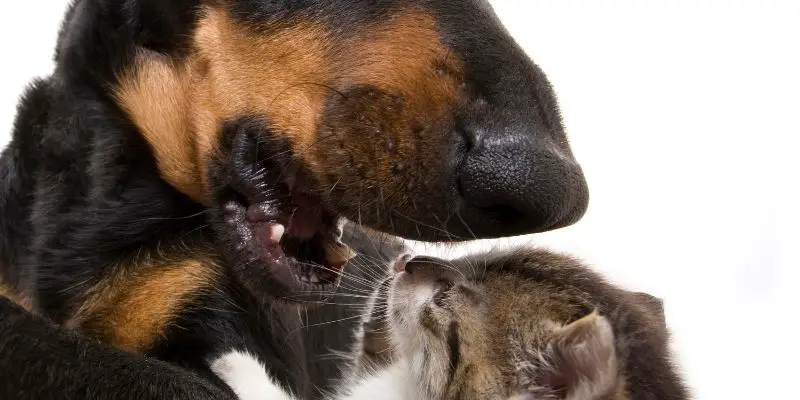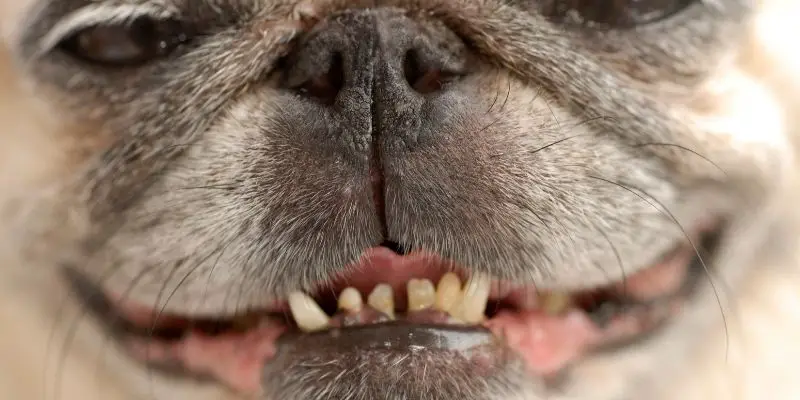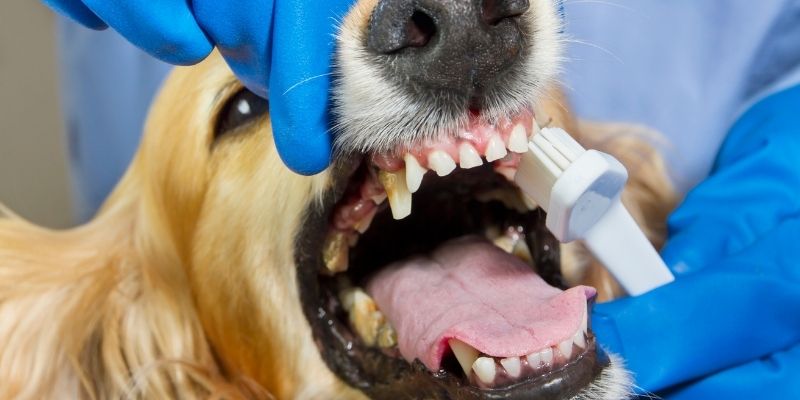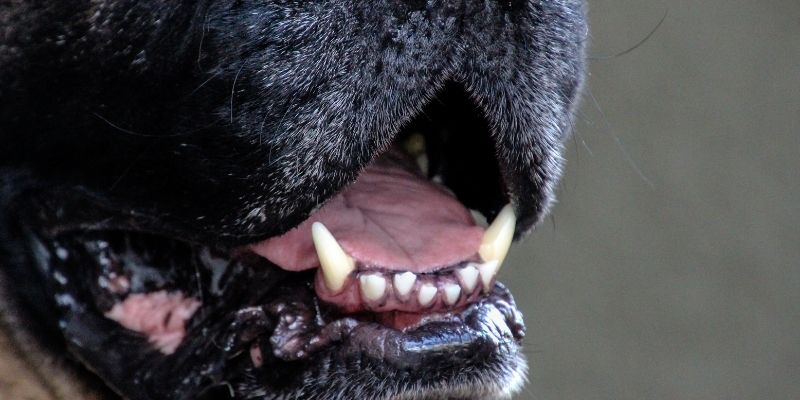Dogs are almost close to perfect – most of them are friendly and affectionate, with no apparent reason. One slight imperfection that may happen, however, is bad breath. In fact, the term “dog breath” is even something we use when we describe smelly humans as well.
Dog’s breath smells like death may have a couple of causes, including tartar/plaque buildup, gum disease, or an underlying health condition. So you definitely should not think of it as a minor inconvenience. Whatever the reason may be, every dog owner should work on fixing the problem of their dog’s breath smelling rotten.
In fact, many dog parents often forget about the oral health of our dogs amid their general health check-ups. Despite the annual cost of owning a dog amounting to $1,843 and the total spending on vet care in the United States and the market itself is estimated to reach $16 billion in 2020.
The oral health of our canines is just as important. We need to make sure we have a regular oral hygiene regimen since gum disease IS preventable. The American Veterinary Medical Association estimates that around 80% of dogs have gum disease by three years old.
Do you have a specific question about the subject? Then use the table of contents below to jump to the most relevant section. And you can always go back by clicking on the black arrow in the right bottom corner of the page. Also, please note that some of the links in this article may be affiliate links. For more details, check the Disclosure section at the bottom of the page.
Here's what we'll cover:
Why does my dog’s breath smell like death?

The main, most common cause of bad breath is the buildup of bacteria on your canine’s teeth. This is called plaque. Usually, a healthy mouth will contain bacteria in it. However, the growth of harmful bacteria (which is the plaque) is never a good sign.
This produces an unpleasant odor. If not removed, your dogs will experience irritation and inflammation around the gums, called gingivitis, which is already the first sign of gum disease. Note that this is preventable! Proper oral hygiene from the time they are puppies is crucial, so start early!
Another important reason why your dog’s breath smells like death is an imbalanced oral and gut microbiome. It might happen when the bad bacteria have overpowered the beneficial ones too much. It’s located in the small intestine, will produce smelly gas, which, in turn, causes bad breath.
That gas is what is absorbed in the bloodstream and then eventually exhaled. This also happens vice versa. An imbalance of the oral microbiome can then affect the bacteria in the gut.

Dog’s breath smells like death even after a bath
Giving your dog a bath will not solve your dog’s bad breath because you are simply washing externally, solely their bodies and fur. Don’t get me wrong, at the end of that bath, your dog will smell amazing. On the other hand, the inside of their mouths will remain the same. Hence, you’ve got to clean the insides of the mouth.

Old dog’s breath smells like death

Dogs, like humans, will gradually become weaker and slow as they age. With that, of course, comes health problems, sadly. On average, a dog is considered a senior when s/he reaches the age of seven.
Among the common health problems associated with age they experience are hearing and vision loss, joint issues, dementia, heart problems, obesity, and kidney problems. With age, dogs’ bodies become weaker to fight off illnesses and even common minor mouth problems such as gum disease, canine stomatitis (inflammation), lip disorders, and tongue inflammation.

What makes a dog’s breath smell like something dead and how to fix it?
As mentioned above, two reasons for your dog’s bad breath can be due to plaque (gum disease) or an imbalance in the gut or oral microbiome.
However, suppose you have taken precautions and have attempted to fix those issues, and still, your dog’s breath smells like a dead animal. In that case, it might be a disease or a serious health condition that underlies the bad breath. The more common connection between disease and bad breath are diabetes, kidney disease, and liver disease.
Diabetes causes the buildup of ketones that then result in breath smelling sweet and fruity. Additionally, with dog diabetes, high sugar levels in the body will lead to high sugar content in the saliva. And it’s not the best condition to deal with. It will attract bad, odor-producing food to stay and thrive.
Kidney disease leads to high urea levels, causing breath smelling like urine and smelling like rotten fish. Liver disease is what causes a dog’s breath to smell musty or smell like a dead animal; due to the liver not being able to properly clean out toxins. Hence, any stinky sulfur compounds will be released into the lungs.

As we’ve mentioned before, the way to combat bad breath is to start early and brush your dog’s teeth. Just as a mother would wash their children’s! There is even a dog-specific toothpaste and brush.
If that is too complicated for you, then there are numerous chew toys and treats. These treats are specifically to “clean” improve your dog’s teeth through the gnawing process that will knock off any plaque. Also, it will increase the production of saliva to wash away bacteria.
Additionally, it is important to routinely check your dog’s mouth for any signs of gum inflammation. So that you can decide to take further action/changes to your dog’s oral health routine. There are different stages of gum disease, and one should have it in mind to see how bad your dog’s oral health is.
There is no harm in asking your veterinary doctor to also quickly check your dog’s mouth whenever you visit the clinic for a check-up. If it is a severe health condition, they can also take further steps/tests to clarify their situation.
Finally, ensuring your dog has a healthy diet! It is essential to look at your dog’s food ingredients and ensure they have enough vitamin A, vitamin B3, vitamin B5, and vitamin B9. These vitamins are said to be the most common vitamins that dog owners tend to forget about. Hence, their dogs might become deficient, and you don’t want that if you care about your pup’s oral health and, subsequently, the smelly breath issue.
Thanks for the blog graphics: Canva.com


